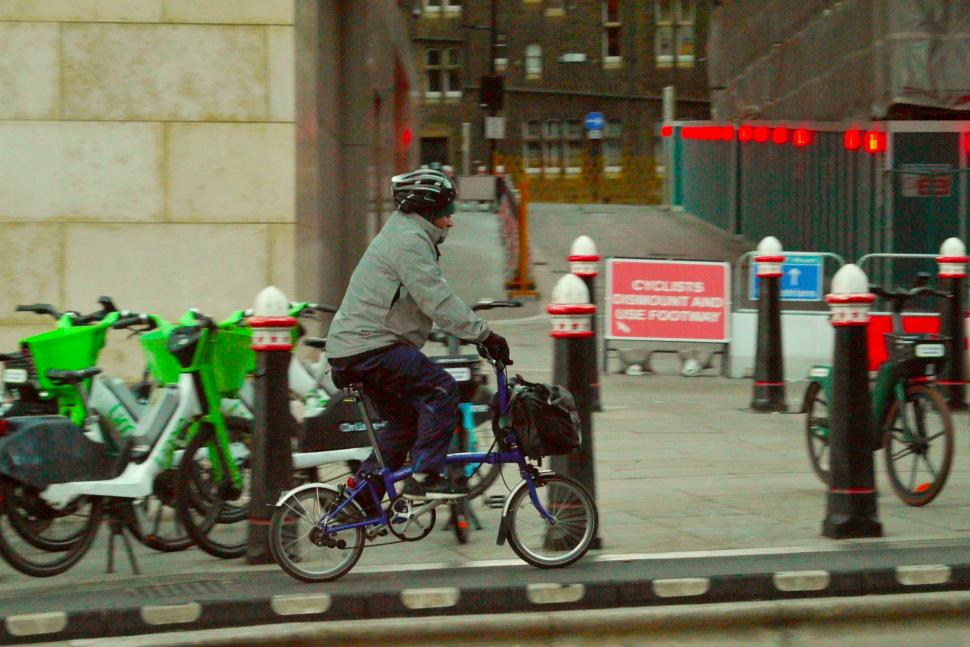“The UK is travelling in the wrong direction”: Cycling miles travelled down and car journeys up according to latest government stats

The Institute for Public Policy Research (IPPR) has slammed the UK Government after the completed Road Traffic Estimates data published today by the Department for Transport show a 7.3% decline in cycling miles travelled and a 2.2% rise in car journeys between 2022 and 2023. It’s estimated that Brits travelled 330.8 billion miles by car in 2023, as opposed to just 3.6 billion miles by bike.
On the same day that Rishi Sunak announced a general election, this will be more unwelcome news among realistic members of the Conservative party, as recent statistics estimate that over 80% of the UK public are fairly or very concerned about the environment.
The IPPR, an independent charity “working towards a fairer, greener, and more prosperous society”, says that over a third of people “want the opportunity to walk, wheel or cycle more than they currently do”, adding that it thinks the government “needs a new transport strategy that reflects both the public’s desire to travel differently, and the pressing environmental and social imperatives to reduce car miles travelled.”
Dr Maya Singer Hobbs, a senior research fellow at the IPPR, commented: “The increase in car journeys and decrease in bus and bicycle journeys shows the UK is travelling in the wrong direction. The UK is sleepwalking towards a traffic-heavy future, with all the economic, social and environmental challenges that brings.
“More cars on the road means more pollution, worse air quality and rising emissions. But people will continue to be reliant on their cars unless the government acts to fix the dire state of public transport around the country. Until people have safe, affordable and reliable options, progress will continue to be stuck in reverse gear.”
The IPPR also commented a month ago on the government’s “shocking lack of progress” on active travel, after data from Sport England’s Active Lives Survey highlighted a stark contrast in levels of physical activity between affluent and less affluent areas. It also cited figures from the National Travel Survey that shown the average distance cycled per person hadn’t changed since 2019.
Back in September 2023, Cycling UK also expressed dismay at findings that shown cycling traffic had dropped by 5% from the previous year, blaming the UK Government’s “flawed” decision to slash the active travel budget and roll back support for low traffic neighbourhoods.
The latest disappointing active travel and cycling stats come off the back of a fortnight in which cycling has had plenty of negative coverage in the wider media, arguably starting with the tragic case of a pensioner who died in Regent’s Park following a collision with a cyclist. A coroner’s inquest was told no charges would be brought against Brian Fitzgerald, who collided with Hilda Griffiths in June 2022.
Just over a week after that story broke, the government agreed to introduce tougher laws for “dangerous cyclists” who kill or injure, with the proposed amendment to the Criminal Justice Bill set to be debated in the House of Lords. That arguably led to another flurry of anti-cycling stories and low-rent radio rants, with the Telegraph coming up trumps when it comes to cycling falsehoods in its feature originally carrying the title ’52mph in a 20mph zone: How cyclists are turning UK roads into death traps’.
The online title has since been shortened with the physically impossible ’52mph in a 20mph zone’ part omitted, the Telegraph claiming in its correction note that the Strava data it used to support the claim “cannot be checked or independently verified”.
It could be said that the government’s stance on active travel has changed somewhat since the days of Boris Johnson’s administration, the former PM calling for a “new golden age for cycling” off the back of his administration’s ‘Gear Shift: A bold vision for cycling and walking’ document that was published in 2020.
There is little to no evidence the ambitions included in that document are being implemented, with promises to increase cycling and walking replaced by references to the “war on the motorist“, rhetoric touted by the current Prime Minister Rishi Sunak and transport secretary Mark Harper in recent months.
After Sunak announced a 4th July general election this evening, active travel and cycling advocates will hope a new government could begin to reverse the decline in cycling and walking, while less pro-motorist and anti-cycling rhetoric coming from the top will mean reduced hostility coming from the press. Not everyone is so enthused, though…
Related
Calls for over 60 free bus travel update from Department…
Calls for free bus travel for those over the age of 60 in England is gaining more attention after an increase of support. Unlike those in Wales, Scotland, and N
Major UK train station is one of the worst places…
Pickpockets are a problem across the UK, but one place is the worst for having your belongings stolen. According to the British Transport Police (BTP), just und
UK Snow Travel Chaos: Kent, East Sussex, West Sussex, Hampshire,…
UK Snow Travel Chaos: Kent, East Sussex, West Sussex, Hampshire, Wiltshire, Surrey, Berkshire, Greater London, Essex, Suffolk, Hertfordshire,
‘Only travel if necessary’ warning as UK’s busiest motorway shut…
NATIONAL Highways have issued an urgent warning to drivers as one the UK's biggest motorways shuts for the weekend. They has urged drivers to re-plan their rou











